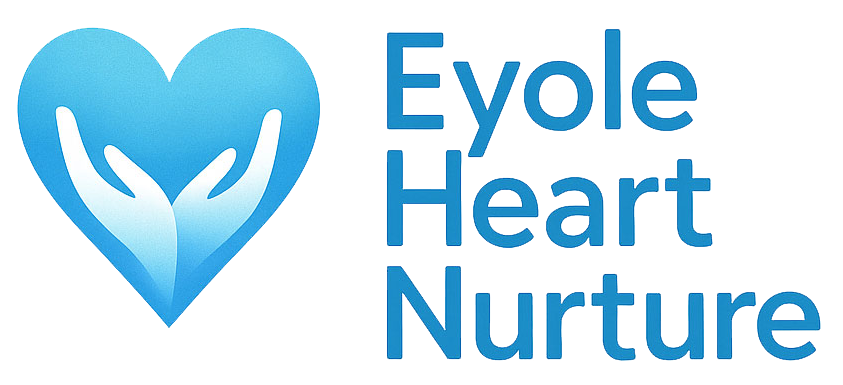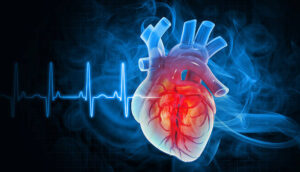Have you ever felt dizzy and wondered, “Could this be my heart trying to tell me something?” If you have, you are not alone, many people experience dizziness and seek to understand whether it signals a heart concern or something less serious.
Dizziness is often described in varied ways, from lightheadedness, a feeling that you might faint, to a sense of imbalance or even vertigo, the world spinning around you. While sometimes it may be due to inner ear issues or dehydration, dizziness can also be the body’s subtle alarm that the heart might be struggling to fulfill its most important task: delivering oxygen-rich blood to the brain.
When Is Dizziness a Sign of a Heart Problem?
Consider Mary, a 57-year-old mother of three, who lived an active life until she began feeling dizzy, especially when standing up quickly or climbing stairs. At first, she dismissed it as fatigue or stress from her busy life, but one morning she nearly fainted at church.
Her healthcare team found that Mary had atrial fibrillation—a heart rhythm disorder that was impairing blood flow to her brain.
According to Avicenna Cardiology, several cardiac conditions may cause dizziness:
- Arrhythmias: Irregular heartbeats like atrial fibrillation or slow heart rates (bradycardia) can disrupt blood flow to the brain, causing dizziness or fainting spells (syncope). Ventricular tachycardia, a rapid heartbeat, can dangerously decrease circulation.
- Heart Attack (Myocardial Infarction): Reduced blood flow during a heart attack often causes dizziness along with chest pain, sweating, and shortness of breath. Immediate medical care is essential here.
- Heart Failure: When the heart weakens and pumps less effectively, the brain receives less oxygen, leading to dizziness and breathlessness. Swelling in legs or feet can accompany this condition.
- Cardiomyopathy: Damage or disease in the heart muscle reduces its pumping ability, resulting in transient dizziness.
- Aortic Stenosis: Narrowing of the heart valve limits blood flow, often causing dizziness, especially on exertion.
- Hypotension (Low Blood Pressure): Sudden drops in blood pressure, especially on standing, can cause lightheadedness.
- Blood Flow Obstruction: Blockages in arteries can diminish blood reaching the brain, causing dizziness or fainting.
- Carotid Sinus Syncope: Pressure on the arteries in your neck can trigger fainting episodes, particularly among older adults.
- Situational and Vasovagal Syncope: These are sudden fainting spells triggered by physical actions or emotional distress—often harmless but sometimes recurring.
According to CCPDocs, many dizzy episodes patients experience are due to manageable and treatable cardiac or blood pressure issues, but only a thorough diagnosis can confirm this.
If you experience dizziness with chest discomfort, palpitations, or fainting, this is a warning that you need prompt evaluation.
Let Your Heart Not Be Troubled
Life is often full of mysteries, but your health need not be one. The Apostle Paul encourages us with, “Do not be anxious about anything, but in every situation, by prayer and petition, with thanksgiving, present your requests to God.” (Philippians 4:6) As you navigate physical symptoms, take heart that both modern medicine and the Good News of hope are at your side.
With medication, lifestyle changes, and faith, Mary reclaimed her balance and health. She often reflects on Psalm 73:26, “My flesh and my heart may fail, but God is the strength of my heart and my portion forever.”
What You Can Do Today: Nourish Your Heart, Body and Spirit
At EyoleHeartNurture.com, we invite you to take our free heart health test, designed to empower you with knowledge and encourage proactive care for your heart.
Practical measures for a healthy heart include:
- Eating a balanced diet rich in fruits, vegetables, whole grains, and lean proteins.
- Engaging in regular physical activity.
- Avoiding smoking and limiting alcohol.
- Managing chronic conditions such as diabetes, hypertension, and high cholesterol.
- Learning to manage stress through prayer, meditation, and community support.
- Recognizing symptoms early and seeking medical advice.
Frequently Asked Questions
- Can dizziness be associated with heart problems?
Yes, dizziness can indeed be a symptom of heart conditions. It often results from reduced blood flow to the brain caused by abnormal heart rhythms (arrhythmias), heart failure, or a heart attack. Cardiac issues can lead to intermittent cerebral hypoperfusion, causing dizziness or fainting. It is important to evaluate this symptom thoroughly, especially if accompanied by chest pain or palpitations.
- Do you feel dizzy with heart failure?
Dizziness is a common symptom in heart failure due to the heart’s diminished ability to pump blood efficiently, which reduces oxygen supply to the brain. Patients may also experience shortness of breath, swelling in the legs, and fatigue alongside dizziness.
- What are the symptoms of heart disease in children?
Symptoms can include fatigue, dizziness, fainting, difficulty breathing, and chest pain. Early detection is crucial, so any warning signs should prompt immediate medical evaluation to prevent complications.
- What are the reasons for dizziness?
Dizziness can stem from many causes, such as inner ear disorders, low blood pressure, dehydration, medication side effects, neurological conditions, and notably heart problems like arrhythmias and heart failure.
- What do cardiologists do for dizziness?
Cardiologists perform detailed diagnostic tests, including ECG, echocardiograms, Holter monitoring, and stress tests to identify underlying heart conditions causing dizziness. Treatment may involve medications, lifestyle modifications, or surgical interventions such as pacemaker implantation, depending on the diagnosis.





